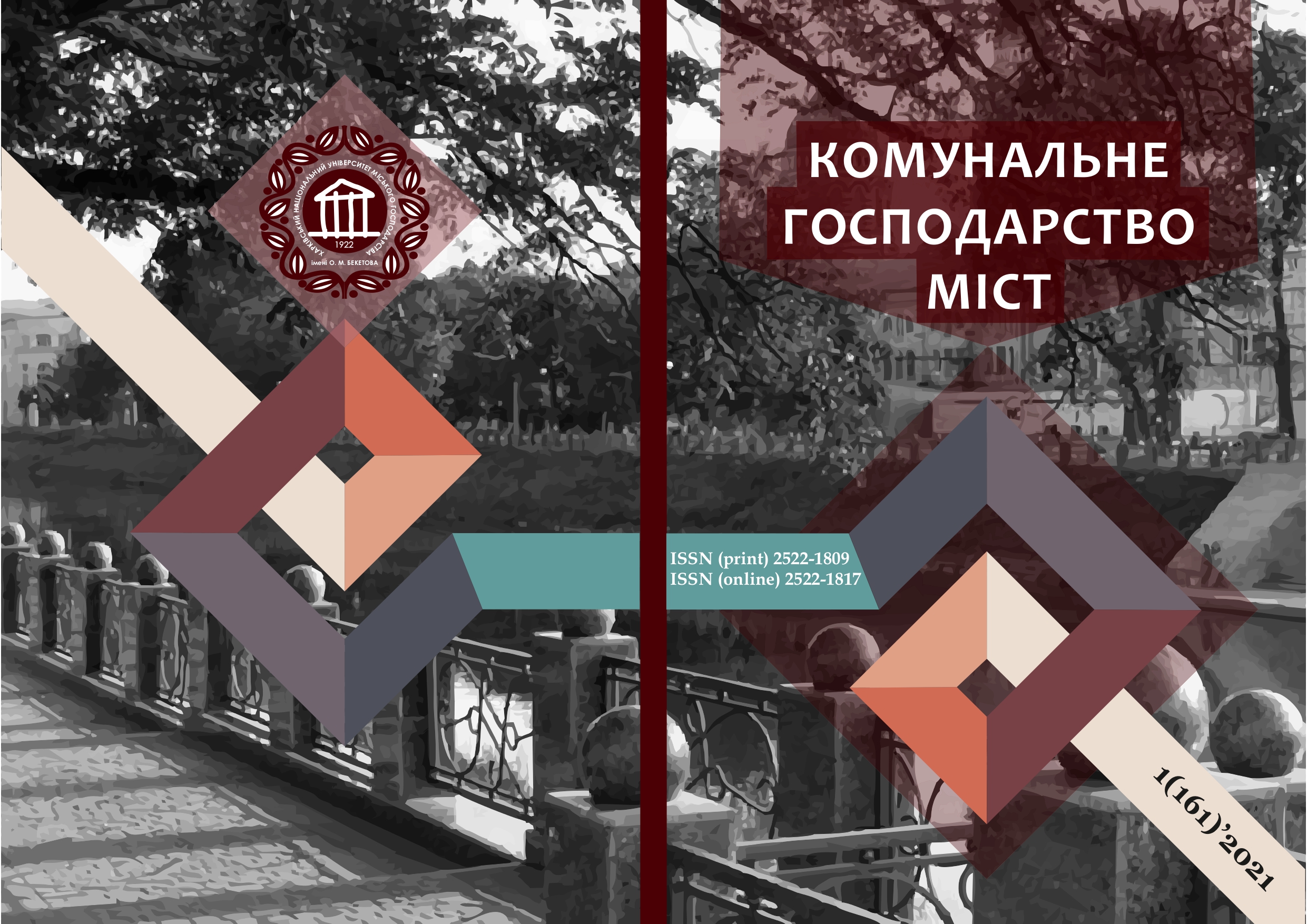PRINCIPLES OF ORGANIZATION OF ENERGY EFFICIENT ECOVILLAGE
Array
Keywords:
ecological situation, energy efficient ecological settlement, sustainable development, Global Ecovillage Network (GEN), renewable energy sources.Abstract
The article is devoted to the study of the ecological situation in Ukraine, defining the role, prerequisites and measures for the organization of energy-efficient ecological settlements in sustainable development, as well as the analysis of domestic and foreign design experience.
The world we live in is on the brink of global catastrophe. After analyzing acute environmental problems, it was found that one of the main ways to preserve and restore natural resources, as well as improve the environmental situation is the development of energy-efficient ecological settlements.
Energy-efficient ecological settlements have become particularly visible since their articulation as a social movement, since 1994, namely since the establishment of the Global Network of Eco-Settlements (GEN). Such communities existed long before the term ecovillage was founded. Ecovillages demonstrate a different way of life, aimed at a better quality of life, while reducing the ecological footprint.
The idea of implementation and development of these settlements is based on solving environmental, economic and socio-cultural problems. The creation of eco-settlements is based on more relevant factors and principles, the main of which are environmental. The plan of ecological restoration and protection of the environment is possible due to the factors of organization, the main components and measures of designing energy-efficient ecological settlements in compliance with political goals. The study focuses on the special characteristics and principles of designing energy-efficient ecological settlements with low consumption of resources, which present innovative technologies, architectural planning, spatial composition, environmental and economic measures.
Examining the principles and means of organization as well as the concept of sustainable development, it was found that these settlements meet all 17 global goals of sustainable development, through smooth integration and adaptation to the local natural and social environment.
After defining the role in sustainable development, the most influential examples of domestic and foreign projects on urban planning aspects of the formation and spatial organization of energy efficient settlements in the dynamics of their historical development are analyzed.
Such settlements will grow out of the needs and opportunities caused by new environmental constraints (due to the high population density in cities), a new level of consciousness and the need to rebuild their own state.
References
2. Goal 13: Take urgent action to combat climate change and its impacts. Retrieved from : https://www.un.org/sustainabledevelopment /climate-change
3. Voda blyzko. Pidvyshchennia rivnia moria v Ukraini vnaslidok zminy klimatu (povnyi zvit za rezultatamy doslidzhennia) / O.H. Holubtsov, A.P. Biatov, O.Yu. Seliverstov, S.S. Sadohurska. [Elektronnyi resurs]. – Retrieved from : http://ecoaction.org.ua/voda-blyzko-report.html
4. The Eco-village Challenge by Robert Gilman One of the articles in Living Together. Summer 1991, Page 10, Copyright (c)1991, 1996 by Context Institute. Retrieved from : https://web.archive.org/web/20041213201638/http://www.context.org/ICLIB/IC29/Gilman1.htm
5. Dawson Jane. Eco-Nationalism: Anti-Nulcear an Natio- nal Identity in Russia, Lithianian and Ukraine / Jane Dawson. — Duke University Press. 1996. Retrieved from : https://www.dukeupress.edu/eco-nationalism
6. Hlobalna merezha ekoposelen. – Retrieved from: https://ecovillage.org
7. Harmash O.I. Ekoposelennia yak novi ekokulturni tsentry Ukrainy / O.I. Harmash, P.V. Pysarenko // Naukovyi visnyk Natsionalnoho universytetu bioresursiv i pryrodokorystuvannia Ukrainy. Seriia: Biolohiia, biotekhnolohiia, ekolohiia. – 2015. – № 214. – p. 64–71.
8. L’association. Retrieved from : https://www.terre-en-vue.be/presentation/l-association/article/l-association
9. Hlobalna merezha ekoposelen Ukrainy. Retrieved from : https://genukraine.com.ua
10. Uhoda pro asotsiatsiiu mizh Ukrainoiu, z odniiei storony, ta Yevropeiskym Soiuzom, Yevropeiskym spivtovarystvom z atomnoi enerhii i yikhnimy derzhavamy-chlenamy, z inshoi storony : Dokument 984_011. – Redaktsiia vid 30.11.2015, pidstava. Retrieved from : https://zakon.rada.gov.ua/laws/show/984_011#Text
11. Hammarby Sjöstad, Stockholm, Sweden. Retrieved from : https://www.urbangreenbluegrids.com/projects/hammarby-sjostad-stockholm-sweden
12. Europe’s greenest city district. Retrieved from : https://www.greencitytimes.com/europes-greenest-city-district
13. Masdar City | Architecture Projects | Foster + Partners. Retrieved from : https://www.fosterandpartners.com/projects/masdar-city
Downloads
Published
How to Cite
Issue
Section
License
The authors who publish in this collection agree with the following terms:
• The authors reserve the right to authorship of their work and give the magazine the right to first publish this work under the terms of license CC BY-NC-ND 4.0 (with the Designation of Authorship - Non-Commercial - Without Derivatives 4.0 International), which allows others to freely distribute the published work with a mandatory reference to the authors of the original work and the first publication of the work in this magazine.
• Authors have the right to make independent extra-exclusive work agreements in the form in which they were published by this magazine (for example, posting work in an electronic repository of an institution or publishing as part of a monograph), provided that the link to the first publication of the work in this journal is maintained. .
• Journal policy allows and encourages the publication of manuscripts on the Internet (for example, in institutions' repositories or on personal websites), both before the publication of this manuscript and during its editorial work, as it contributes to the emergence of productive scientific discussion and positively affects the efficiency and dynamics of the citation of the published work (see The Effect of Open Access).

